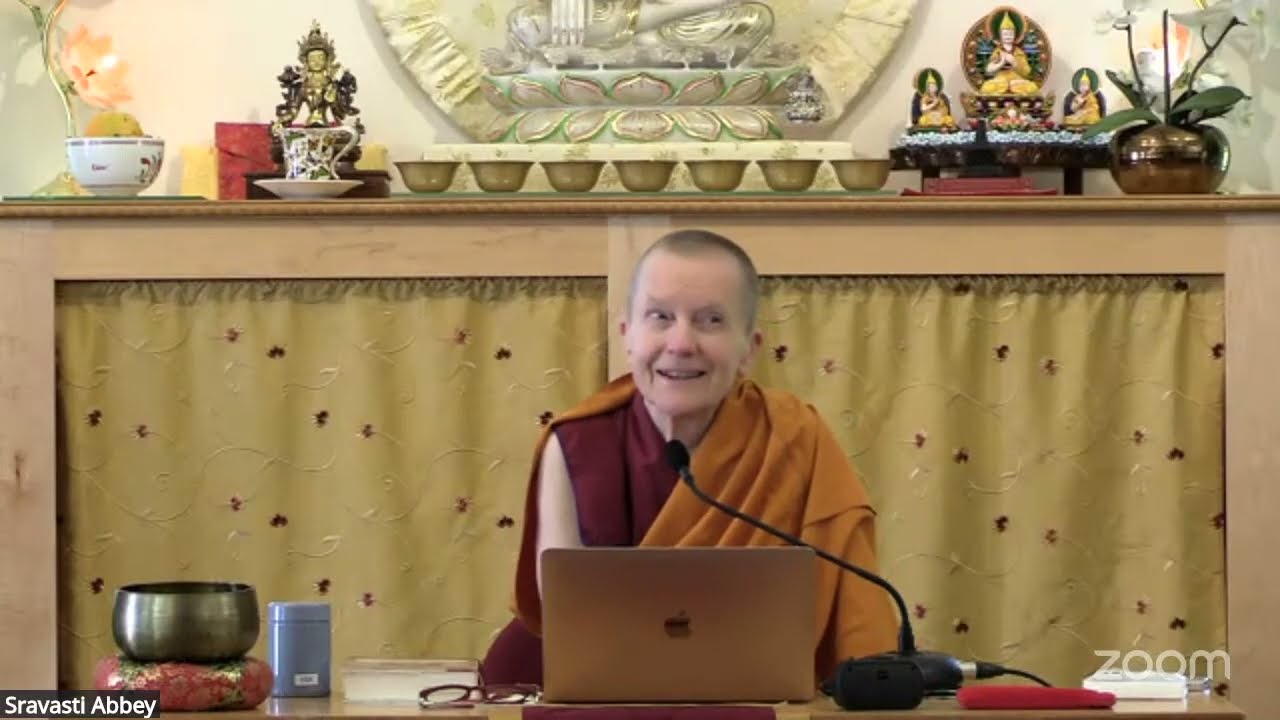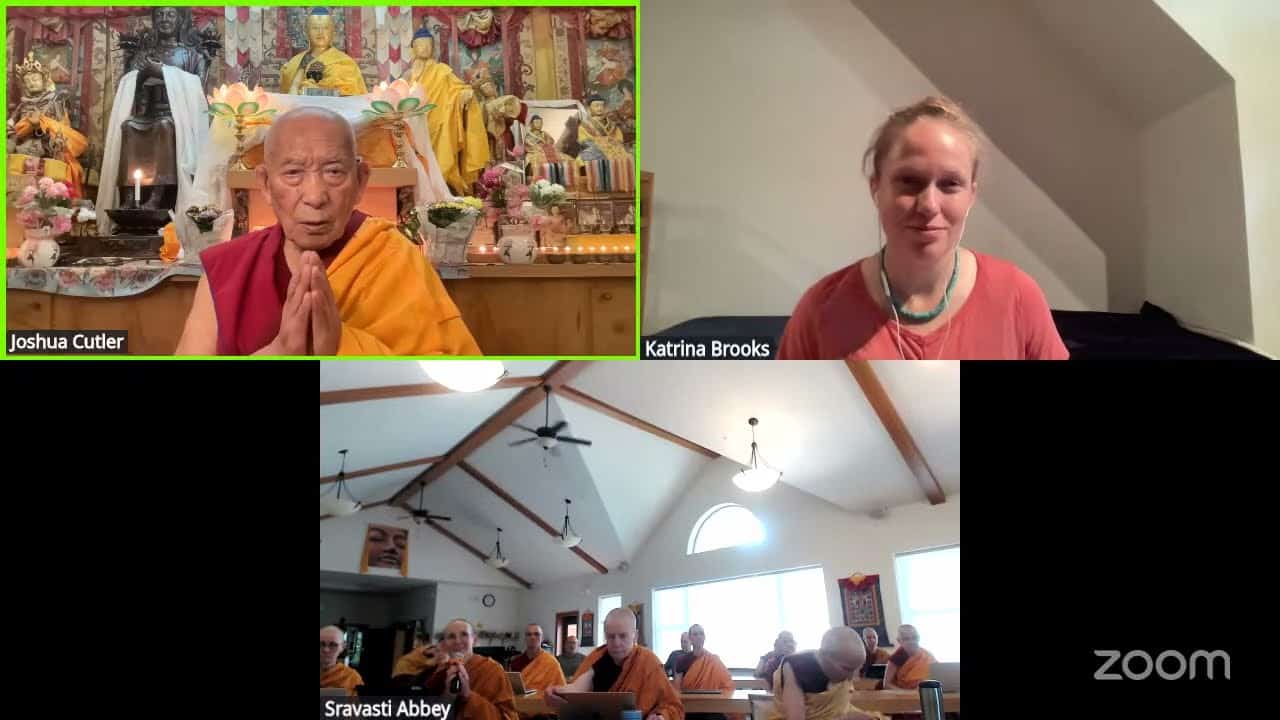Hindrances of malice, lethargy and sleepiness
55 Following in the Buddha's Footsteps
Part of an ongoing series of teachings based on the book Following in the Buddha's Footsteps, the fourth volume in The Library of Wisdom and Compassion series by His Holiness the Dalai Lama and Venerable Thubten Chodron.
- Different forms of malice
- Disadvantages of anger and advantages of overcoming it
- Love, kindness and forgiveness as antidotes
- Lethargy and sleepiness
- Physical and mental
- Causes, function and antidotes
- Nagarjuna’s quote on sleep
- Restlessness and regret
- Physical, verbal and mental
- Causes, function and antidotes
55 Hindrances of Malice, Lethargy and Sleepiness (download)
Contemplation points
- What is malice and how does it interrupt concentration? Pinpoint examples of it in your own experience. How does it lead us to inaccurate thoughts and views? How does it lead us to interact with others? What are the short-term (this life) and long-term (future lives) results of malice? Make examples of this from your own life.
- Spend some time contemplating the Buddha’s words about anger. Do you have resistance come up in your own mind when you think about abandoning all anger? Can you see how anger leads to the opposite of the following and why abandoning anger achieves them? Look back over your own states of anger as you contemplate each one:
- Some of the antidotes of anger from the teaching include: turning your mind to the kindness of others, releasing the judgmental/vengeful attitude, and cultivating forgiveness and love. Why are each of these so potent to overcoming anger? Take some time to consider how these antidotes could help to transform your experience as you interact with the world around you.
- What do lethargy and sleepiness look like in meditation and how do they interrupt concentration? Pinpoint examples of it in your own experience.
- What kinds of things contribute to lethargy and sleepiness? The text discusses many antidotes that we can apply to overcome these. What are some of these and which are particularly helpful for you?
- What do restlessness and regret look like in meditation and how do they interrupt concentration? Pinpoint examples of it in your own experience. What are some of the antidotes that were suggested in the teaching to overcome these?
Venerable Thubten Chodron
Venerable Chodron emphasizes the practical application of Buddha’s teachings in our daily lives and is especially skilled at explaining them in ways easily understood and practiced by Westerners. She is well known for her warm, humorous, and lucid teachings. She was ordained as a Buddhist nun in 1977 by Kyabje Ling Rinpoche in Dharamsala, India, and in 1986 she received bhikshuni (full) ordination in Taiwan. Read her full bio.


